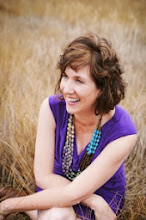News of Interest for Late-in-Life Moms September 15, 2008
**Contest celebrating new Mommy-Come-Lately® website continuing until Wednesday, Sept. 24th. Go here for details about winning a $200 AVEDA gift certificate!**
News to know:
Baby bottle chemical draws mixed messages from U.S.
The Food and Drug Administration (FDA) is reopening the debate over bisphenol A, or BPA, a chemical used in many plastic products -- including baby bottles.
An FDA panel of outside experts plans to review the agency's draft report issued last month saying that BPA is safe. Critics argue the FDA ignored strong evidence in animal studies that BPA is harmful.
CNN Report: Why infants still die from SIDS
Story Highlights:
Fewer than 2,500 infant deaths this year will be classified as SIDS
SIDS may be underreported because causes of infant deaths are mislabeled
Babies who begin daycare before 4 months of age may be at increased risk
Study: Kids of Privileged Working Moms Fare Worse
A Newsweek article highlighted a study that reported kids from high-socioeconomic-status families have difficulties when their moms work outside the home.
According to economist Christopher Ruhm, at ages 10 and 11, kids perform more poorly on cognitive tests and are also more likely to be overweight than those whose high-status mothers leave the workforce.
Children from low-status families, on the other hand, don't seem to suffer as much when their moms work.
Labels: baby bottle safety, Christopher Ruhm study on working moms, SIDS
 In Others' Words
In Others' Words
 Follow Me on Twitter
Follow Me on Twitter



